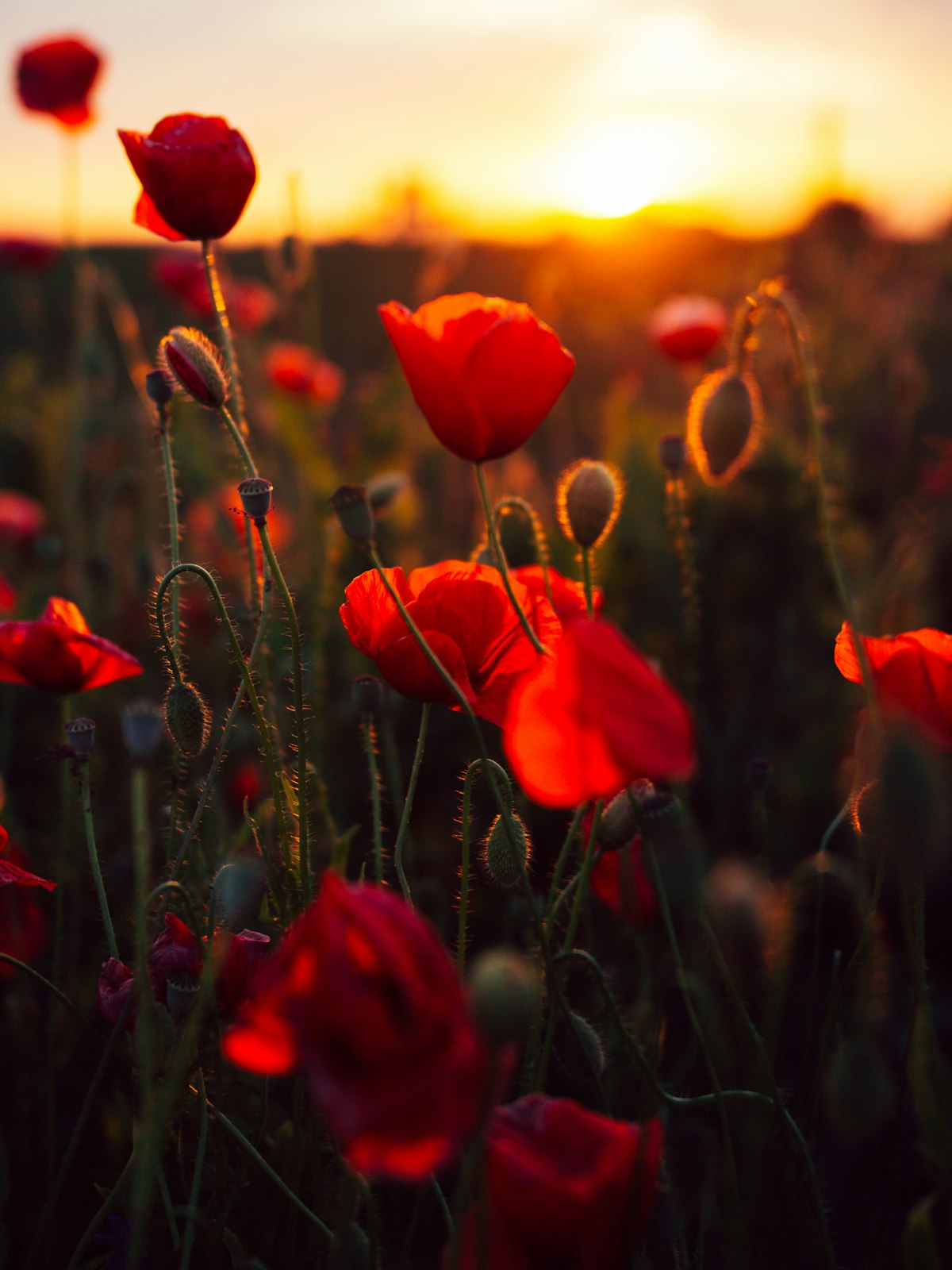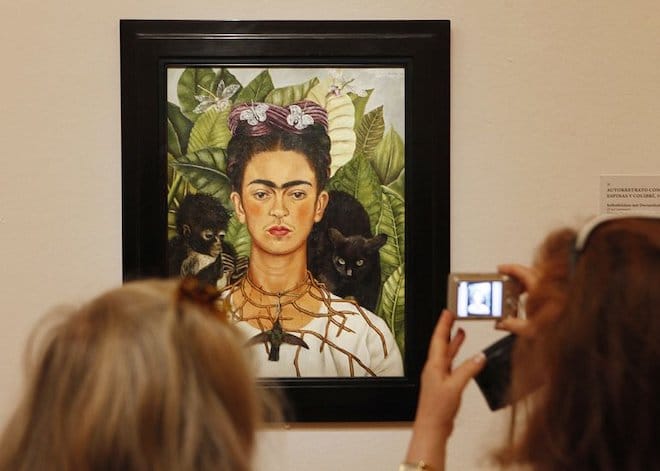For Erica, Who Makes the Flowers Grow
We were young when we all met, intrepid seven year olds evicted from air-conditioned houses by distracted parents, left to fend for ourselves in the sunbaked streets of suburbia.

We realized it slowly, and then all at once. Truman and Alice and I were confused when we first met Erica, curious. We discussed it behind her back a few times: Have you ever noticed? But once we’d confirmed our suspicions, once we watched Erica walk across a lawn and leave a trail of lilies in her wake, we accepted it, in our innocence, without second thought. Everyone has that one friend with a special skill; perhaps yours can wiggle his ears or memorize a string of twenty numbers. Our friend could make the flowers grow.
We were young when we all met, intrepid seven year olds evicted from air-conditioned houses by distracted parents, left to fend for ourselves in the sunbaked streets of suburbia. We banded together out of necessity, and spent the summer before second grade as a pack, the scourge of the neighborhood, armed with sharpened sticks and no moral code whatsoever. Erica took the lead. She was always the one who suggested we hop the fence, scrawl chalk masterpieces on the sidewalk, sneak up onto Mr. Watson’s roof and peek in through the skylight.
Just like your friend with the wiggly ears, Erica loved to entertain. Once, I recall us sitting on the searing asphalt of her driveway, watching her braid the weeds together. The leaves danced in midair to some silent song that only she knew how to sing. Truman and Alice and I stared at the blades of scruffy grass that lined the drive and squinted at them until we turned purple. The grass waved gently in the wind, indifferent. But once the initial interest blew over (which did not take long, as our attention spans were remarkably limited), Erica’s skill was about as interesting as Truman’s baseball card collection or my drawings: it could keep us entertained for an afternoon, sure, but at the end of the day it was nothing more than one of Erica’s defining traits, as everyday as her freckles.
We grew up, fast. The four of us together, still wandering the streets on the weekends, in the summer, whenever we could find a scrap of time to stretch into a memory. Alice was still shy and pretty and Truman was still in love with her and Erica could still make plants grow. I still drew, sometimes, when I didn’t have homework. I drew Erica pulling a vine up from between the sidewalk cracks. I drew Truman with his baseball cards and later, on the pitcher’s mound. I drew the view from the roof of Mr. Watson’s house. I imagined the tracks that we had walked into the sidewalks over the years, the indelible marks our of our upbringing, and sometimes I tried to draw these too, tried to draw the residue of our years on this block, the ceaseless looping and bunching of time. These drawings never came out very good.
We went to high school. At the first party we attended, Erica grew a patch of poppies right in the middle of the living room. We were not invited to the next party. We didn’t care. We didn’t need anyone else to keep us entertained.
We stopped wandering so much, because kids running through your backyard are at best cute and at worst annoying, but teenagers running through your backyard are alarming any way you cut it. We hung out in our rooms instead, pretended to write essays for English, laughed endlessly about nothing until our parents banged on the door and reminded us that it was a school night, and we had to return reluctantly to our own habitations, lonely already. We spent the most time in Erica’s room because she had a nice window, facing west, the sill lined with houseplants. Sometimes, the four of us would lie on her bed and watch the sunset bleed red through the leaves. For a laugh, she’d weave the stems into shapes, stars, hearts, once into a middle finger facing towards Mr. Watson’s window. We still, more than anything, wanted to stretch our childhood out as long as we could—at least I did, and I assumed that everyone else felt the same way.
When Truman and Alice started dating, I told myself that I really should have seen it coming. I was embarrassed by my shock, to be honest. I’d watched the preening and pairing off of teenagers from a distance, hell, we’d laughed about it together; I hadn’t expected it to be occurring right under my nose. The giggles, the smirks, the flirtatious arm-pushing had whisked right by me, and it wasn’t until they came to me, together, holding hands, that I understood. And then it became Truman-and-Alice, and Erica, and me.
And so, stupid teenage boy that I was, I started to think. Think about how Erica had nice curly dark hair, had those tiny freckles on her nose that you couldn’t see unless you stood real close. Think about her hands, short nails, long fingers, think about the stretch of her stomach when she lifted her arms. Feel the warmth of her when we walked side by side, and imagine that warmth closer, closer.
Sometimes, increasingly often, Truman-and-Alice would only drop by to say hello before heading out into town to see a movie or drink a single soda with two straws or whatever couples do. At first I gritted my teeth at their retreating backs, but it didn’t take so long to realize the upside: Erica and I, alone.
So I started the giggling. The smirks. The flirtatious arm push, even, although this scared her so bad that she shot a tulip right up through the floorboards next to my bed. That night, after she left, I filled a water glass, picked the tulip and put it on my bedside table. It was a red tulip, the kind that looks like it’s glowing from within. It wilted by morning, and over the next few days I let it fold in on itself back into the water glass, unwilling to throw it out.
I think we must have been sixteen at this point. I remember that Truman and Alice had had sex around this time, so knowing Truman, if I called him up now he could tell me the exact date. Truman said that it wasn’t what he expected, that the fumbling and warmth and general sweatiness had caught him off guard. I couldn’t wait to try it.
So this is what it came to: Truman-and-Alice out again, Erica and I, side by side on her bed, checking answers on our algebra homework. We were close enough that her freckles were distracting me, and it was evening, so the sunset was shining golden light between the waxy houseplant leaves, and my hormone-addled brain could not imagine a more perfect moment. I said something stupidly funny, and she giggled, and I was absolutely, positively sure that it was The Sign. So I slid her homework off her lap, all smooth, I’m sure I thought, and when she looked up at me in confusion I pushed back a curl from her cheek in a movement that felt stilted because I’d imagined it so many times, and I kissed her.
She jumped up off the bed immediately and asked what I was doing. Kissing you, I’m sure I said, and I imagine she said, no, no, we can’t do that, look what happened to Truman and Alice, we can’t do that, how could you, you’re my friend and now you’re going to tear our friendship apart, how could you? But I do not remember the particulars. What I remember is her increasing agitation while I sat there on the bed in a sort of mind-numbed horror at her blatant rejection. What I remember is her pacing, yelling, and behind her, the sunset growing dark.
The plants sprouting upright in their pots on the windowsill grew towards her voice, and then they were snaking their way across the floor, putting out feelers and wrapping themselves around the legs of her dresser, around the feet of the bed, around her ankles. The tendrils waved up onto the mattress while she shouted, and she didn’t see me cowering against the headboard or she didn’t care. She just stood there, her cheeks flushed, backlit by sunset, a thousand creepers waving around her in a sentient halo, and it struck me that I had never seen anything as beautiful. And then the tendrils reached my ankles and I came to my senses and I leapt off her bed and out the door.
I went home, and I sat on my bedroom floor next to the hole where the tulip had grown through the floorboard, and I drew her. I drew her anger and her confusion and her awe-inspiring power, and I drew myself, tangled in vines, at her feet, and I drew Truman-and-Alice, way off in the background, drinking out of a soda cup with two straws. And then I put the drawing in my closet and didn’t look at it again for several years.
Years later, in college, I found the drawing and entered it in an art competition. It didn’t win, but the judge, who was one of my teachers, asked where I’d gotten the idea. I told him she was a friend of mine, and he said, I see, you’ve been lucky enough to have the kind of friends who inspire art.
And I suppose that’s true.
Erica never mentioned the kiss again. Our friendship moved on as though nothing had happened, and we dragged ourselves through high school and then graduated and she moved to the city and I went to university and Truman and Alice moved into Mr. Watson’s house after he finally kicked the bucket. Erica and I tried to stay in touch, but you know how these things go. One day I called her and the line had been disconnected. I’ve been meaning to track her down for years, but I’ve never managed to get around to it.
Truman and Alice are married now. They live in sunbaked suburbia and their daughter and son roam the streets as we did. I visit a few times a year, and we sit on their porch and it doesn’t feel like much has changed. Sometimes we talk about Erica, about the dancing weeds in the driveway, and we shake our heads in indifferent fascination, unsure whether to doubt our memories, and then Truman gets me another beer and we talk of other things. Sometimes, I still try to draw our intersecting paths, through the block, the neighborhood, the years, twining together like vines. I think if I keep drawing our lives over and over again, someday it might come out the way I can see it in my head.
Esmé Kaplan-Kinsey is a California transplant studying creative writing in Portland, Oregon. Their work appears or is forthcoming in publications such as Beaver Magazine, Gone Lawn, and Anti-Heroin Chic, and has been recognized by the National YoungArts Foundation and the Scholastic Art and Writing Awards. They are a prose reader for VERDANT, as well as a mediocre guitarist, an awe-inspiring procrastinator, and a truly terrible swimmer. They can be found on X/Instagram @esmepromise.



